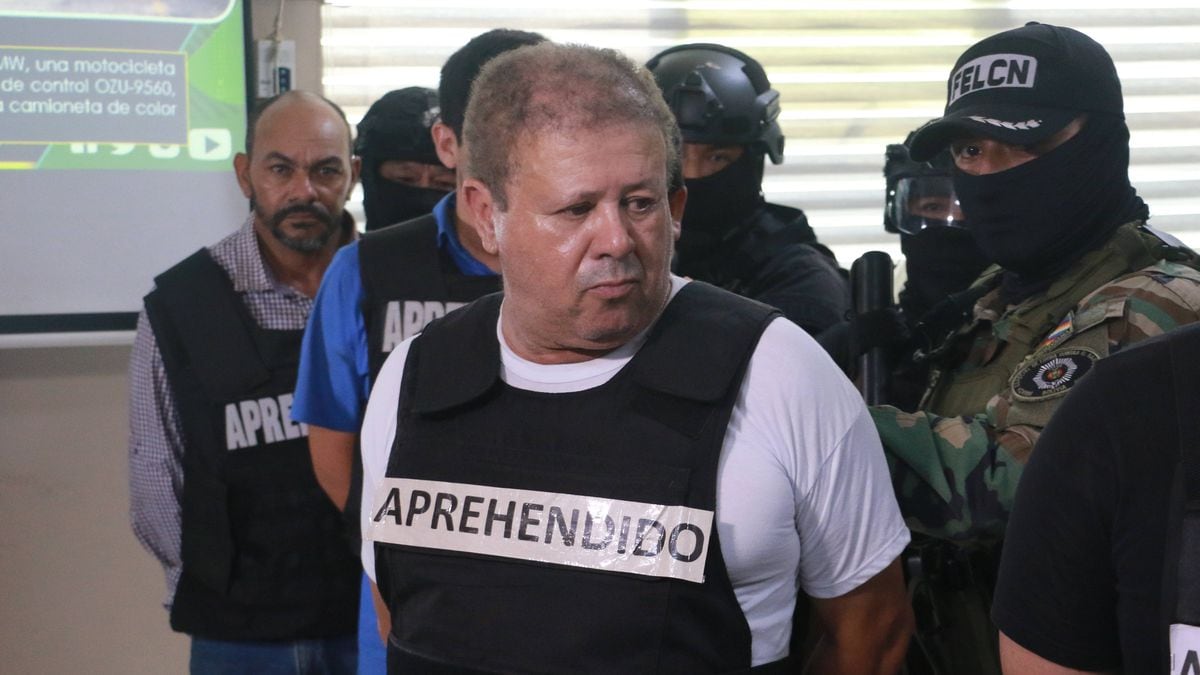“We did not capture a big fish, but a drug trafficking whale.”
This is how the Bolivian Minister of Government (Interior), Eduardo del Castillo, illustrated the delivery to Brazil of Lourival da Fonseca, a Brazilian drug trafficker detained in Bolivia on February 15.
The next day, Fonseca was taken by helicopter from the Bolivian city of Santa Cruz de la Sierra to Puerto Quijarro, on the border with Mato Grosso do Sul, the State that the criminal allegedly flooded with Bolivian cocaine for more than ten years.
According to investigations by the press in his country, Fonseca is considered the “third owner” of the Brazilian narcotics market, focused on the regions of this country that border Bolivia.
Which justifies the joy of Minister Del Castillo when announcing his expulsion from Bolivia.
“He is one of the biggest drug traffickers that has ever existed in our country,” he told the press.
Lourival Maximo da Fonseca, alias
Tião
, and also
Loro
, 56 years old, was arrested at the Santa Filomena farm, near San Ignacio de Velasco, 476 kilometers east of Santa Cruz de la Sierra.
The police had been carrying out operations in this area for days.
A Brazilian had been riddled with more than 15 shots on Carnival Sunday and abandoned at his home in the city and two days later, while Bolivia celebrated the "ch'alla" or immolation in honor of Pachamana, goddess of the Earth, a Bolivian with a history of drug trafficking had lost his life shot at a party.
These crimes are relatively unusual in this area of the country, which is dedicated to agribusiness, forestry and tourism.
The authorities attributed them to the fight between two Brazilian cartels, the PCC and the Red Command, for control of Bolivian drug export routes to Brazil.
Police sources consulted by that newspaper did not want to confirm if there is a link between the murders in San Ignacio and Fonseca.
According to these sources, after a long period of trafficking with Brazil, Fonseca began using the opposite route, the one that connects with Chile.
He is believed to be the kingpin behind the massive shipments of cocaine camouflaged in loads of wood that left the forested Bolivian Chiquitania, where San Ignacio de Velasco is located, towards the Chilean ports on the Pacific, through which most of the Bolivian trade passes with the world.
Fonseca already had two Brazilian restraining orders.
The Bolivian police activated their search after the seizure, at the end of December last year, of a cache of 8.7 tons of liquid cocaine impregnated in a shipment of wood that was going to the Netherlands.
Due to the amount of drugs seized, this was the most important operation in the history of the fight against drug trafficking in Bolivia.
It has culminated in the arrest and expulsion of the alleged mastermind.
The criminal used the name Ivo Anderson Dos Santos in Bolivia, hid behind discreet cover and practiced a lifestyle very different from that of the Uruguayan drug trafficker Sebastián Marset, who last year put national authorities in an uncomfortable situation with his film escape from the country.
Marset remains a fugitive, supposedly hiding in Paraguay.
Property worth more than ten million dollars was confiscated from him.
Fonseca, on the other hand, only formally owned an exchange house and a service station.
When he was detained, he was with three other Brazilian citizens.
The police are looking for his wife and his two children.
This blow against crime will be exploited by the Government in its controversy with former president Evo Morales, former mentor turned main opponent of President Luis Arce.
Morales has accused the ruling party of “collaborating with drug trafficking.”
Faced with this, Del Castillo has shown data on what has been achieved by his management of the fight against drugs and has denounced the existence of ties between some coca growers, Morales' unconditional peasants, and drug traffickers.
Follow all the international information on
and
X
, or in
our weekly newsletter
.

